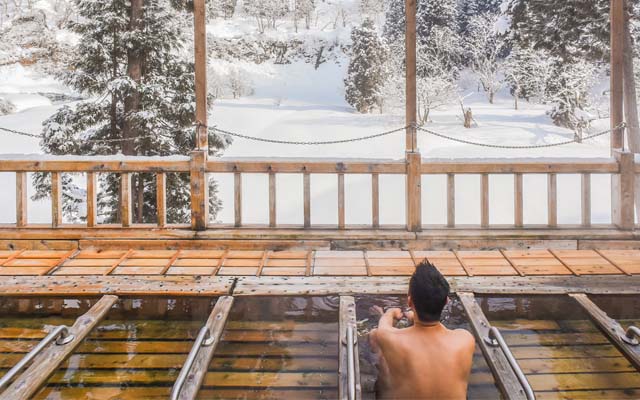The rise of micro-tourism as Japan’s domestic travel market springs back to post-pandemic life, aided by a national campaign, has birthed new opportunities for luxury hoteliers in Japan, who are tapping that demand with safety promises, curated activities and creative pivots. By Kathryn Wortley
Even with the halt on inbound tourism, new opportunities are emerging for luxury providers in Japan as the micro-tourism trend gains steam among domestic travellers.
The small-scale style of travel has seen an uptick across the country, given impetus by the government’s July launch of a subsidised travel campaign offering 50 per cent off trips. Most participants so far have opted for single-destination trips within a few hours’ drive of home and, due to the discount, have been happy to splurge.

Keen to shun crowded attractions and facilities, many travellers with mid to high disposable income have been seeking hotels that can offer an all-rounded experience, including relaxation (a hot spring or spa), various F&B options, activities (a pool or gym) and local interaction (exclusive mini-tours). This trend is enabling luxury hoteliers to maximise on the rebound in the domestic market.
Hoshino Resorts, for instance, is targeting locals living within a 60-minute drive from its properties, with the lure of meals, hot springs and relaxation in a private space. Footfall has risen, with more Japanese consumers favouring “travel closer to home and in a safe space”, said Jiseon Lee, the company’s area manager of global marketing.
At Small Luxury Hotels of the World (SLH), guests are showing a keen interest in enjoying their hotel and its surrounds in a way that suits the new normal.
Mark Wong, SLH’s senior vice-president Asia-Pacific, said: “The reservations team has been receiving more requests to make restaurant reservations, spa appointments and local city excursions.
“We are also partnering with local experiential travel providers to curate activities that are off-the-beaten-track. (Our) partners have specifically identified and curated safe tour itineraries that avoid crowded places, so guests have that added security.”
Properties that average about 50 rooms are also enjoying a resurgence in hotel buyouts as social distancing becomes the norm. Since the pandemic, SLH’s trio of Japan hotels that offer buyouts have seen an uptick in enquiries from families and groups of friends for exclusive use at the end of 2020 and into 2021.
In response to that demand for privacy and seclusion, the company launched its Stay Small, Stay Exclusive programme to offer enhanced health and detailed safety guidelines, promising peace of mind to potential guests. Standards established under the programme are safeguarded by SLH’s partnership with the Global Biorisk Advisory Council and the latter’s GBAC STAR accreditation.
Even before the coronavirus struck, most luxury providers had placed a premium on small-scale, bespoke trips to off-the-beaten-track destinations, rendering them particularly poised to tap rising demand for micro-tourism.
Case in point: Bespoke luxury DMC Discover Shikoku, which has always put privacy and separation at the heart of its operations. Managing director Sean Brecht noted that no “significant leap” was needed for the company to adapt to the realities of travel in a post-pandemic world.
Some luxury travel providers who once solely targeted foreign visitors have successfully pivoted to the domestic market, thanks to micro-tourism business opportunities.
One such provider is itinerant hotel brand 700,000 Heures, whose properties operate in each location for six months. After launching near Kyoto in May, the hotel began to attract locals keen on micro-trips due to its European atmosphere.
In the face of prevailing uncertainty around inbound tourism, the owner saw an opportunity, dialling up the hotel’s European elements, and even making the switch from Japanese to European cuisine.
Julia Maeda, co-founder of boutique travel agency Okuni, which utilises 700,000 Heures in its trips, said the hotel was booked solid by Japanese residents following the pivot.
In the long run, the rise of micro-tourism in Japan is expected to provide a welcome boost to the luxury market via a greater number and variety of products and services.
Moreover, as micro-tourism also enhances collaboration among nationwide and regional companies and local experts, this approach can improve industry operations, according to Hoshino Resorts’ Lee.




















